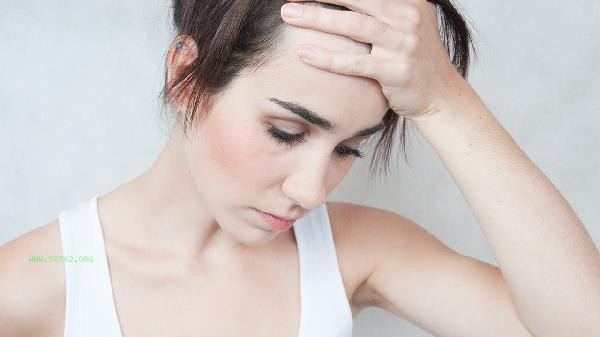Menopausal anxiety can be alleviated through lifestyle adjustments, psychological interventions, dietary adjustments, exercise, medication therapy, and other methods. Menopausal anxiety may be related to changes in hormone levels, psychological stress, sleep disorders, chronic diseases, environmental factors, and other factors.

1. Adjusting Lifestyle
Maintaining a regular schedule can help stabilize emotions, avoid staying up late, and prevent overexertion. Reduce the use of electronic devices before bedtime and create a quiet and comfortable sleeping environment. Properly participating in social activities and communicating with family and friends can alleviate feelings of loneliness. Avoiding the intake of stimulating foods such as coffee and strong tea, quitting smoking and limiting alcohol consumption can help reduce emotional fluctuations.
2. Psychological Intervention
Cognitive behavioral therapy can help adjust negative thinking patterns and alleviate anxiety. Mindfulness meditation practice can enhance emotional regulation ability, and persisting for 10-15 minutes a day has a significant effect. If necessary, seek professional psychological counseling to relieve psychological stress through confession and counseling. Cultivating hobbies such as gardening and painting can shift attention and enhance pleasure.
3. Dietary regulation
Increasing foods rich in phytoestrogens such as soy products and flaxseed can help balance hormone levels. Supplementing with B vitamins can improve neurological function, and whole grains and green leafy vegetables are good sources. Moderate intake of foods rich in tryptophan, such as bananas and milk, can promote serotonin synthesis. Maintain a light diet, control the intake of high sugar and high-fat foods, and avoid exacerbating symptoms of hot flashes.

4. Exercise
Engaging in aerobic activities such as brisk walking and swimming 3-5 times a week for 30-40 minutes each time can promote the secretion of endorphins. Soothing exercises such as yoga and tai chi can relax the body and mind, and improve sleep quality. Strength training 2-3 times a week to enhance muscle strength and prevent osteoporosis. The appropriate intensity of exercise is slight sweating to avoid excessive fatigue.
5. Drug therapy
Hormone replacement therapy should be performed under the guidance of a doctor, with strict evaluation of indications and contraindications. Traditional Chinese patent medicines and simple preparations, such as Rukunbao Pill and Gengnian An, can alleviate mild and moderate symptoms. When necessary, use anti anxiety drugs such as paroxetine and sertraline to regulate neurotransmitters. Supplementing with calcium supplements and vitamin D can prevent osteoporosis and improve overall health. Menopausal restlessness is a common physiological phenomenon, and most symptoms gradually alleviate over time. It is recommended to maintain a calm mindset and establish healthy lifestyle habits. Pay attention to balanced nutrition in diet, and increase intake of beans, nuts, and deep-sea fish in moderation. Persist in moderate exercise and choose a preferred exercise method for long-term persistence. Seek medical attention promptly when symptoms are severe and do not self medicate. Family members should provide full understanding and support, and work together to create a relaxed and happy family atmosphere. Regular health check ups are conducted to monitor changes in indicators such as blood pressure, blood glucose, and bone density.





Comments (0)
Leave a Comment
No comments yet
Be the first to share your thoughts!